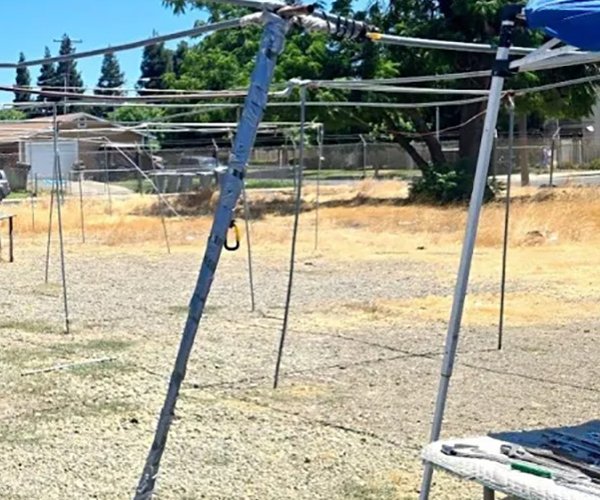The revised state budget proposal released by Gov. Gavin Newsom on Thursday aims to tackle California’s affordability crisis that families face on health care, housing and education, all while placing a record amount into the state’s reserves and paying down unfunded retirement liabilities.
“The California Dream must be built on a strong fiscal foundation,” Newsom said. “This budget fortifies California’s fiscal position while making long-sighted investments to increase affordability for California families. The affordability crisis families face in this state is very real, and that’s why this budget tackles those challenges head-on by focusing on housing, health care, early childhood and higher education.”
The updated proposal builds on the $209 billion budget Newsom laid out in January, expanding health care coverage for undocumented immigrants and spurring housing construction.
The nation is approaching its 10th year of recovery following the Great Recession, and while short-term revenues are increasing, California itself faces continued uncertainty from Washington and around the world. Accordingly, Newsom’s revised budget allocates $15 billion to build budgetary resilience and pay down the state’s unfunded liabilities — $1.4 billion higher than was originally proposed in January.
The Rainy Day Fund is now expected to reach its constitutional cap of 10 percent of General Fund Revenues in 2020-21, two years earlier than predicted in January. The May Revision also seeks to eliminate state budgetary debts and reverse funding deferrals, marking the first time in over a decade that all budgetary debts are completely paid off.
The revised budget, while working to fortify the state’s fiscal foundations, also aims to confront rising costs throughout the state on everything from health care to housing.
The budget proposal moves California closer to health care for all, with Newsom suggesting the state becomes the first to expand Medi-Cal coverage eligibility to young adults ages 19 through 25 regardless of immigration status. The budget also proposes first-in-the-nation subsidies for middle-income earners to be able to purchase health care on the Covered California exchanges.
When it comes to the housing crisis, which Newsom believes is the fundamental economic challenge facing families in the state, $1.75 billion was included in the January budget’s General Fund to increase housing production. The May Revision maintains this commitment to spur housing production, but refocuses $500 million to remove barriers to building mixed-income housing.
Housing advocates are thankful for Newsom’s affordable development increase, as the redirected $500 million will go toward the more-targeted state Infill Infrastructure Grant Program, which has been effective in completing affordable housing developments for years.
The May Revision also expands the Earned Income Tax Credit — widely-known as one of the most effective anti-poverty measures in our nation’s history — by providing a Cost-of-Living Refund, which helps economically distressed families with the costs of food, rent and child care. The budget revision proposes increasing the additional credit for families with young kids proposed in January from $500 to $1,000.
"These changes reflect input provided by Housing California and our partners to lift up Californians who are struggling the most," said Lisa Hershey, executive director of Housing California. "This budget proposal underscores the vital role our state must play in generating what people fundamentally need most - a home."
The May Revision dedicates $1 billion to fighting the state’s homelessness epidemic, including $650 million to local governments for emergency aid, $120 million for expanded Whole Person Care services, $150 million to address the mental health professional shortage and remaining money to go toward Supplemental Security Income, student rapid rehousing for University of California and California State University students, eviction prevention and over $400 million to increase grants to families in the CalWORKs Program.
Housing California believes that while the $1 billion increase in homelessness funding will be helpful, help beyond emergency aid will be necessary to see true progress in fixing the epidemic.
“As the governor has said, ‘Shelters solve sleep, housing and services solve homelessness,’” Hershey said. “We believe a more comprehensive approach like the Flexible Housing Program introduced in AB 816, and backed by a coalition of housing advocates and the Big City Mayors, will effectively provide permanent homes for people experiencing homelessness. We can all agree that we need a concerted housing approach to end homelessness for Californians to create a California for All.”
The budget also includes $81.1 billion for education spending, maintaining funding for two free years of community college tuition for first-time, full-time students, as well as significant funding increases for the CSU and UC system to prevent tuition increases.
For K-12 schools, the budget includes the largest-ever investment in the state’s public education system by providing approximately $5,000 more per pupil than eight years ago, including additional investments to assist students with the greatest needs. Compared to January, the revision increases the ongoing funding for Special Education by almost $200 million and also makes significant investments in the recruitment and retention of qualified teachers by revamping teacher training and providing targeted service scholarships.
“We applaud this commitment to public education, especially by adding funding to assist students with the greatest needs. The revision also makes significant investments in the recruitment and retention of qualified teachers, and supporting the financial burdens they face,” State Superintendent Tony Thurmond said. “I am pleased that Governor Newsom is placing a top priority on education and look forward to a strong, productive partnership with him, the Legislature, and all stakeholders in the next few years that will lift up all of our students by improving our education system and increasing the resources that go to our schools — today’s announcements prove his commitment to increasing funding for public education.”
Assemblyman Heath Flora criticized new tax increases in the May Revision, which Newsom has proposed to fund health care subsidies, clean drinking water and the new tax credit increase for low-income families. Flora doesn’t think a surplus budget needs additional tax increases, his Chief of Staff Dylan Gray said via email, and that the state takes enough money from California’s taxpayers, making it “gratuitous” at a certain point.
Senator Andreas Borgeas was more optimistic about the budget proposal.
“The Governor’s May Revise shows promise with his commitment to invest in education, emergency preparedness and addressing the homelessness crisis,” Senator Andreas Borgeas said. “In addition, the increase to the Earned Income Tax Credit will help struggling families. We still need to address California’s rising costs and restrain the tax-and-spend nature of this state.”
Newsom’s updated budget proposal signifies the final weeks of negotiations with the Legislature ahead of the June 15 deadline for lawmakers to pass the spending plan.








